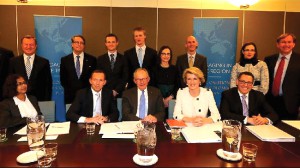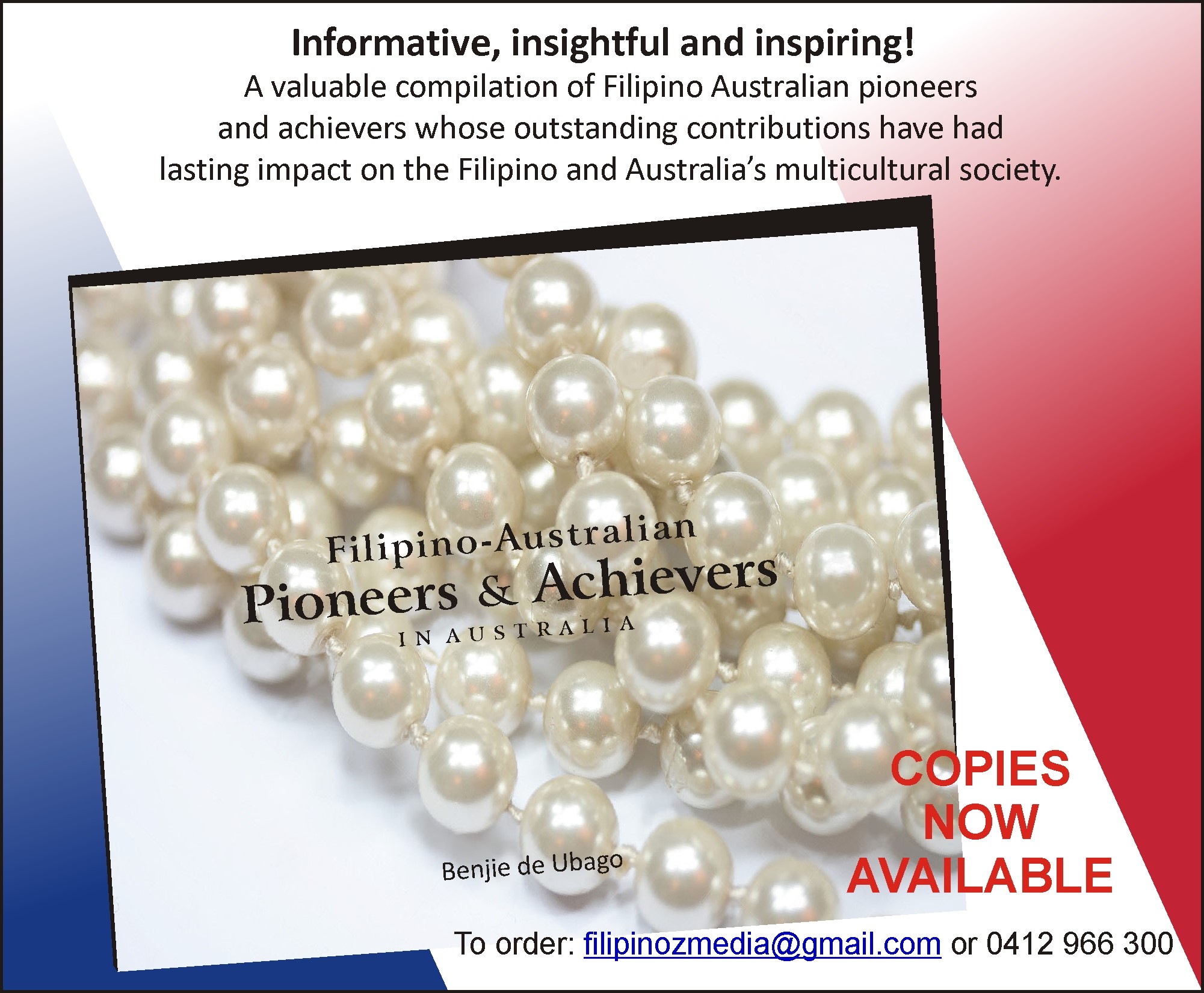



 Taking a cue from the success of the original Colombo Plan Scheme, an early major Australian diplomatic strategy, that existed between 1950s and the mid-80s where Australia became known and noticed among countries of South and South East Asia region participating in the plan, Australia recently embarked on an ambitious similar, although initially regarded as an opposite to the old Colombo Plan Scheme, by giving initial priority to sending young bright Australian students, between 18 and 28 years old undergraduate students enrolled at Australian universities to complete their studies at host countries in the Indian Ocean Asia-Pacific region.
Taking a cue from the success of the original Colombo Plan Scheme, an early major Australian diplomatic strategy, that existed between 1950s and the mid-80s where Australia became known and noticed among countries of South and South East Asia region participating in the plan, Australia recently embarked on an ambitious similar, although initially regarded as an opposite to the old Colombo Plan Scheme, by giving initial priority to sending young bright Australian students, between 18 and 28 years old undergraduate students enrolled at Australian universities to complete their studies at host countries in the Indian Ocean Asia-Pacific region.
The idea is not only to provide strong support to Australian undergraduate students to spend a substantial period of their time studying and living in the region but also to help them learn to interact with host universities through attachment programs with counterpart education provider in the region.
There would be emphasis on internships, or similar mentorship or practical work experience arrangements.
Ultimately, Australian students completing this program will develop professional connections in the region and would link their study experience directly to career pathways, either with businesses and organisations and entities from Australia operating in the host country, or from organisations within the host country.
The New Colombo Plan was launched late in 2013, with the initial pilot programmes involving the countries of Indonesia, Japan, Singapore, and Hong Kong beginning Semester 1 of 2014.
Many in the government see its potential to bring about long-term benefits for Australia’s engagements in the region that would motivate many people. The plan underscores learning and sharing experiences as fundamental to its success.
Australia is giving assurance to continue to review and refine, and improve the plan as a permanent activity aiming at fostering closer ties between Australia, initially with four countries pilot components of the plan, and eventually expanding the coverage after 2015 to include all countries in the Indian Ocean Asia-Pacific region.
The success of the original Colombo Plan Scheme is seen in the words of the then Minister for External Affairs Percy Spender who realistically and convincingly told all Australians that ‘Geographically, Australia is next door to Asia, and our destiny as a nation is irrevocably conditioned by what takes place in Asia.
This means that our future depends, to an ever-increasing degree, upon the political stability of our Asian neighbours, upon the economic well being of Asian people, and upon the development of understanding and friendly relations between Australia and Asia.’
In re-introducing a modified cooperative arrangement between Australia and its neighbours the current Australian government is following similar strategy, but focusing first on a one way traffic of Australians scholars and trainees to the regions to complete their study up to a maximum of one year each grant, either on mobility grant or scholarship grants.
The current plan is inspired by the success of the old plan which recorded around 40,000 future leaders from South and South East Asia acquiring education in Australian colleges and universities from time of its inception in the 1950s until mid-1980s.
Observers are of the opinion that many of the changes that have taken place in the region were influenced by the Australian educated and trained recipients of various scholarship and grants who returned to their home country, bringing with them the expertise, experience, and ideas they have acquired during their stint in Australia.
It has been noted also that many Asian leaders were once scholars and trainees in Australia. A mention was made of the Vice-President of Indonesia and the Minister for National Development in Singapore who were Colombo Plan Scholars during their student years in Australia, not to mention the many other alumni that include Prime Ministers, Presidents, Vice-President, Cabinet Ministers, business leaders, community leaders now regarded as exceedingly powerful in foreign policy terms.
The New Colombo Plan is different and better than the original, according to the present government. To quote from the official media release, it ‘will be different and better than the original, adding an outward-bound component to the original on-way street.’
The plan will include the sending of the best and brightest young Australians to study in the Indian Ocean Asia-Pacific region aiming at contributing to the advance-ment of the region and taking the role of as co-equal partners.
It will also improve the skills, knowledge and cultural understanding of Australian students. Initially, the Australian government will provide financial support for up to 300 young undergraduate Australians to study in the region every year starting the first semester of 2014. Scholarships will be awarded to applicants under 22 years of age who are enrolled in Australian universities under-taking an undergraduate degree. Applicants will under-take one or two semesters of study toward their degree at an accredited host university within the Indian Ocean Asia-Pacific region. Although the program will officially commence in 2015, pilot programs for Indonesia, Singapore, Japan and Hong Kong started already in 2014.
Relevant scholarships were awarded and recipients were called Singapore Fellow, Hong Kong Fellow, Japan Fellow and for Indonesia, a Yudhoyono Fellow.
Positively indorsing the new plan, Australian Parliamentary Secretary to the Minister for Foreign Affairs, Senator Brett Mason was quoted to have said that there is a need for universities, the business sector and the Govern-Government to continue to actively promote the NCP to students in order to build student interest in study opportunities in its neighbour-ing areas.
There will be scope for students to undertake internships with businesses or NGOs in the host countries. As planned, it will eventually be a true two-way New Colombo Plan which takes Australian university students to Asian universities to learn more about the Indian Ocean Asia-Pacific Region and brings the best and brightest talent from the region to Australia.
A Steering Group chaired by the prominent business leader Mr. Kevin McCann, AM, with Professor Sandra Harding, Vice-Chancellor of James Cook University and Chair of Universities Australia, as Deputy Chair. The Steering Group is tasked to develop proposals for the implementa-tion of the New Colombo Plan.
For many decades, students from the region have come to Australia and the present Australian government initiative will continue to encourage the huge interest in study in Australia by students from the Indian Ocean Asia-Pacific Region–whether privately or through the support of government or tertiary institutions.
An initial funding of $100 million over five years to implement the new plan will be provided by the Australian government. Initially mobility funding offers were made to 24 universities supportingt 300 student experiences in the four pilot destinations countries – Japan, Singapore, Hong Kong and Indonesia in Semester 1, 2014.
The students would undertake study experiences ranging from semester-based and short-term study to teaching practicum, research, field studies and clinical placements in host countries. It is expected that when Australian students return home they are work ready and Asia-literate, full of ideas to boost Australia’s ingenious and productivity to guarantee that Australia is taking full advantage of the region’s economic transformation.
According to Hong Kong’s Education Secretary, Eddie Ng, the plan confirms the im-portance of education links in strengthening the broader Hong Kong-Australia relation-ship. He added that the plan will ‘provide an excellent opportunity to boost the number of Australians studying in Hong Kong and raise Hong Kong’s profile in Australia.’ Mr. Ng also agrees on the importance of the common vision of widening students’ horizons and nurturing leaders with global perspectives and abilities to thrive in a multi-cultural environment.’
Speaking on the importance of the plan, Japan Foreign Minister Fumio Kishida said that it would facilitate close re-engagements between the people of Japan and Australia by encouraging increasing numbers of talented young Australians to study and gain career experience in Japan.
Justifying the New Colombo Plan, Australian Foreign Minister Julie Bishop said: ‘we have much to learn from our friends and neighbours in the region. The New Colombo Plan is intended to transform and deepen these relationships and, over time, to make study in the Indo-Asia-Pacific a rite of passage for Australian students.’
The Philippines is looking forward for its future inclusion into the New Colombo Plan. Currently, partnership between the two countries is seen through the Foreign and Trade Ministers’ Meeting (Philip-pines-Australia Ministerial Meetings); Australia-Philip-pines Country Strategy (2012-2017); Status of Visiting Forces Agreement (SOVFA); two way trade valued at $3.4 billion in 2012 through the Australian-Philippines business Council; ASEAN-Australia-New Zealand Freed Trade Agreement or AANZFTA; and the people to people links through trade, investment, cultural exchange, tourism and migrations.
Excerpts from Connecting Two Cultures: Australia and the Philippines by the author.










Leave a Reply